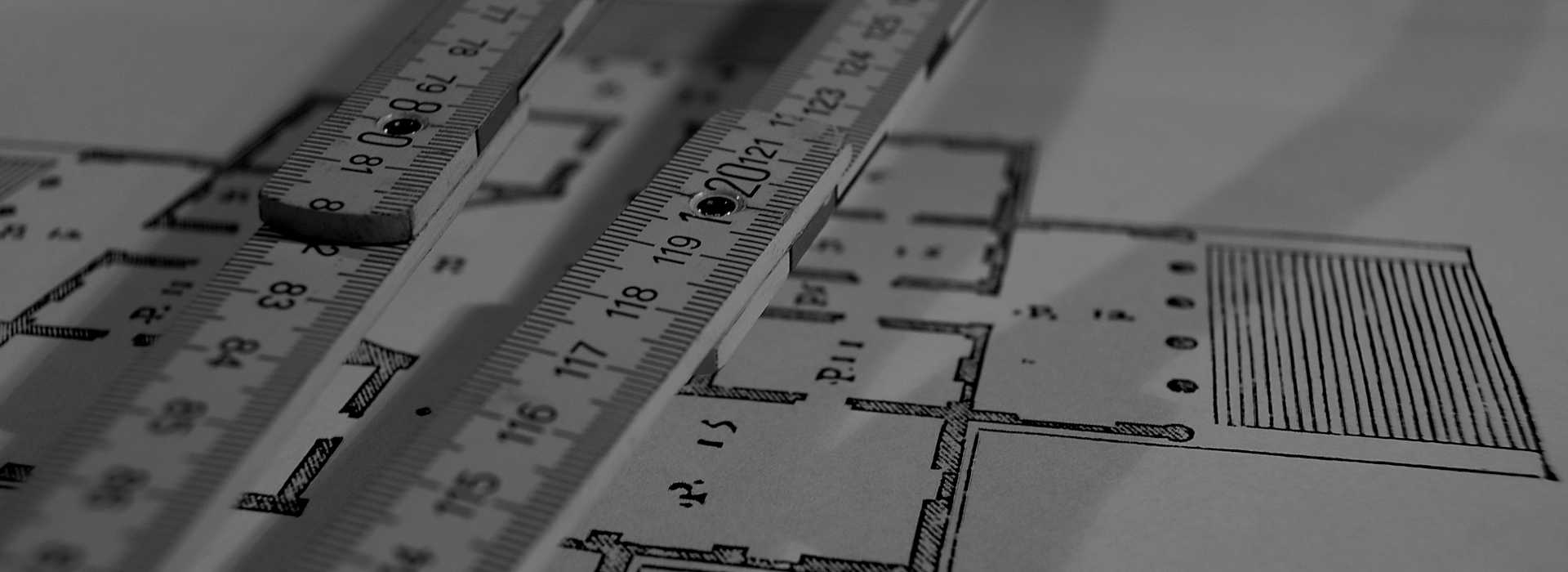Welcome to MCSE
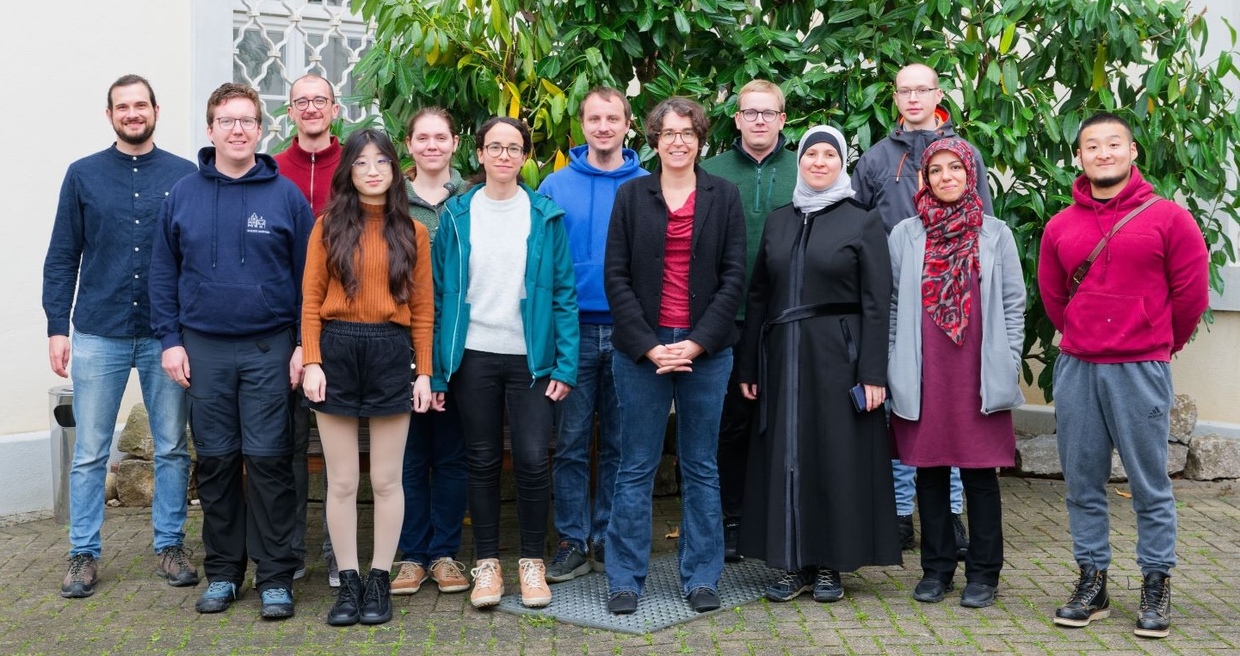
MCSE: Modelling for Continuous Software Engineering (previously known as ARE: Architecture-driven Requirements Engineering) has been started in February 2013 and is headed by Prof. Anne Koziolek. Since 2021, we have been a member of the KASTEL — Institute of Information Security and Dependability, and we renamed the research group to MCSE. The group is part of Software Design and Quality.
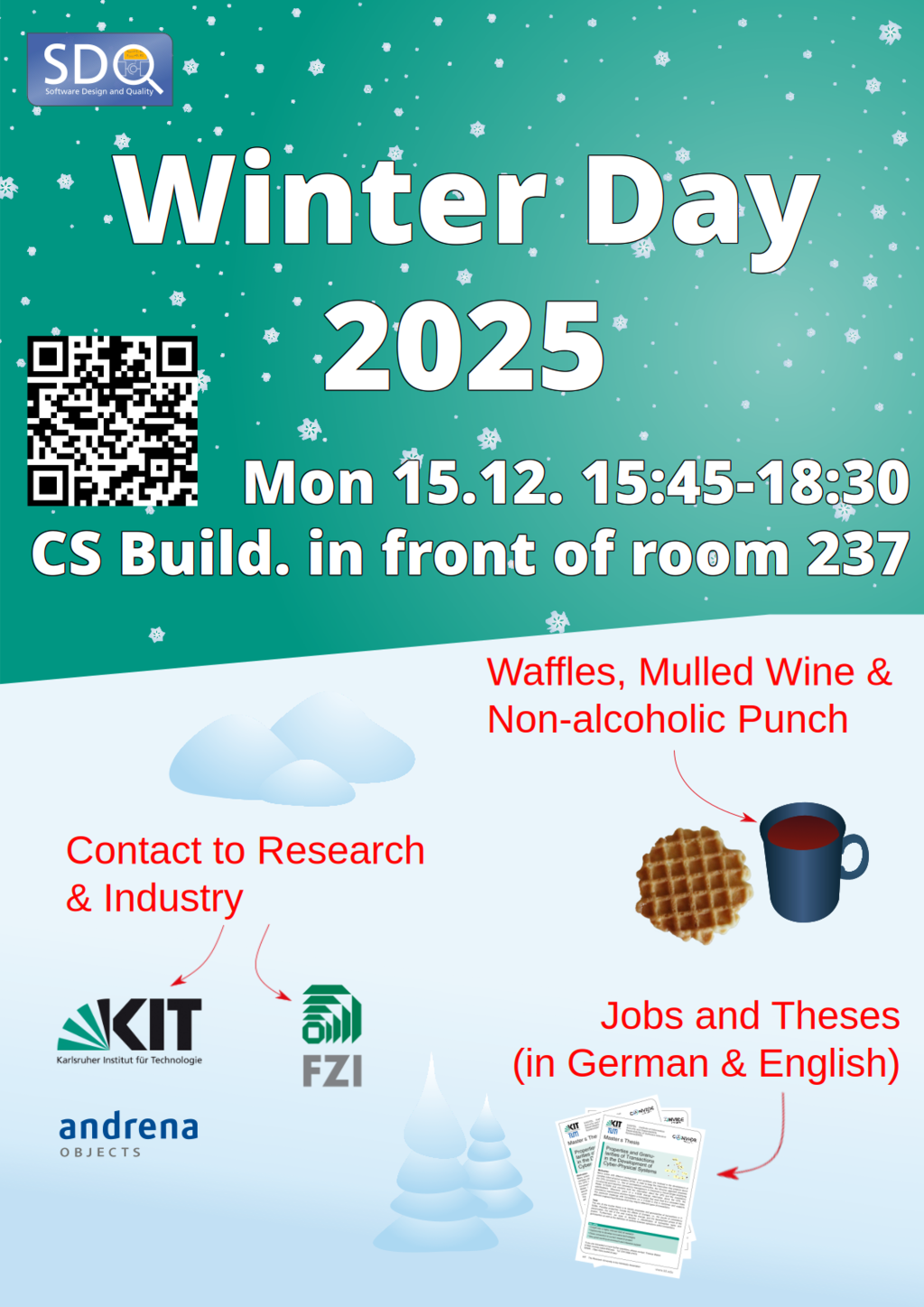
On Monday, December 15th, the SDQ Winter Day 2025 will take place, starting at 15:45 at the Infobau (building 50.34) in front of room 237. There, the research groups MCSE (KASTEL Koziolek), DSiS (KASTEL Reussner), and SASIS (KASTEL Mirandola) will present themselves to interested students. In addition to presentations from research and industry, there will be free mulled wine, non-alcoholic punch, and waffles. There is also the opportunity to discuss thesis topics with members of the groups.
More information about the program can be found at https://sdq.kastel.kit.edu/wiki/SDQ_Winter_Day.
SDQ Wiki Winter Day Page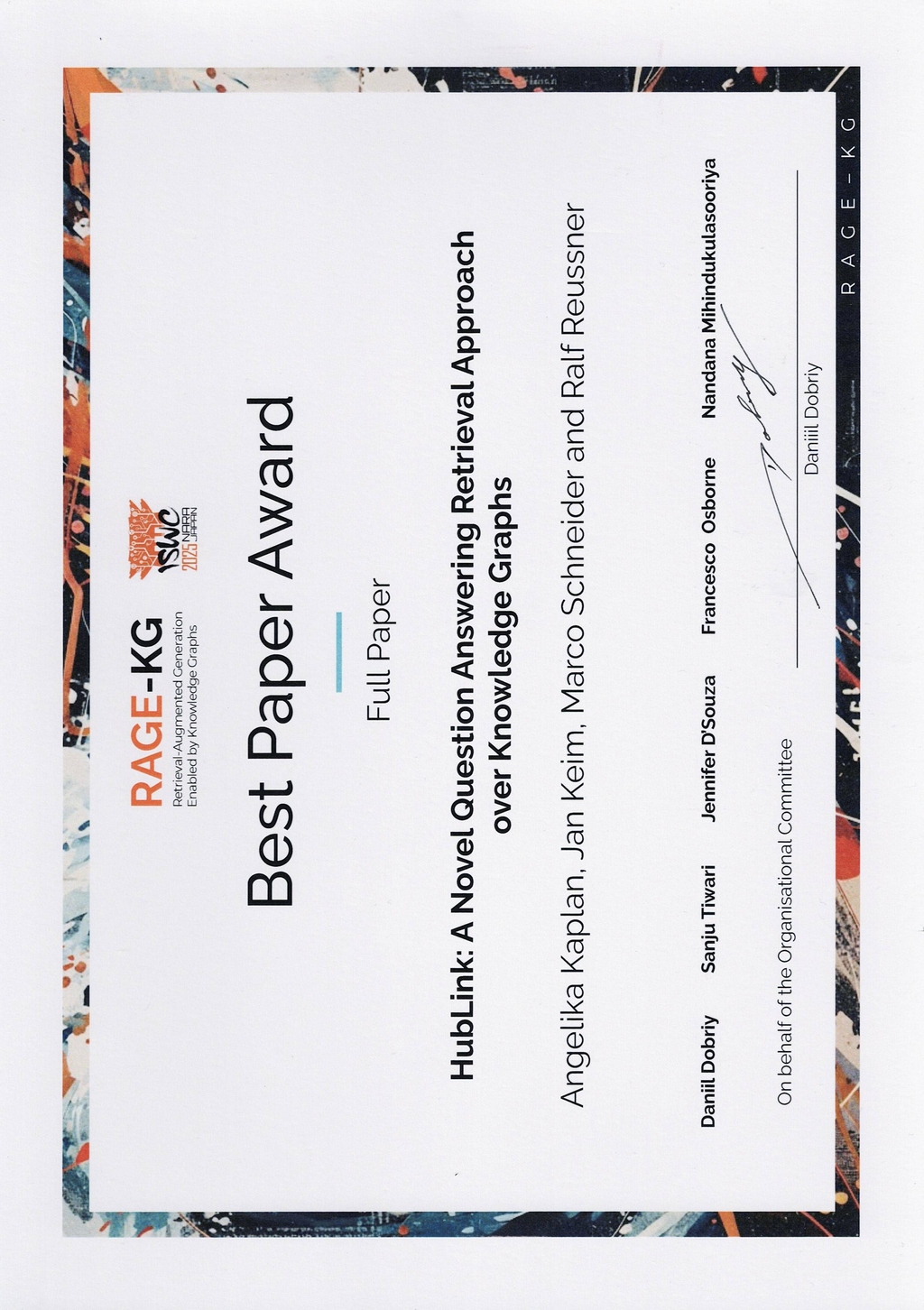
The paper titled "HubLink: A Novel Question Answering Retrieval Approach over Knowledge Graphs" by Angelika Kaplan, Jan Keim, Marco Schneider, and Ralf Reussner was praised as exceptional contribution and awarded best paper in the full paper category at the workshop for Retrieval-Augmented Generation Enabled by Knowledge Graphs (RAGE-KG) at the ISWC 2025.
In their paper, the authors introduce HubLink, a schema-agnostic and training-free approach for Question Answering over Knowledge Graphs that uses large language models to improve scholarly search and source-aware inference. Evaluated on the Open Research Knowledge Graph, HubLink outperforms state-of-the-art baselines, particularly for complex scholarly queries.
Link to the paper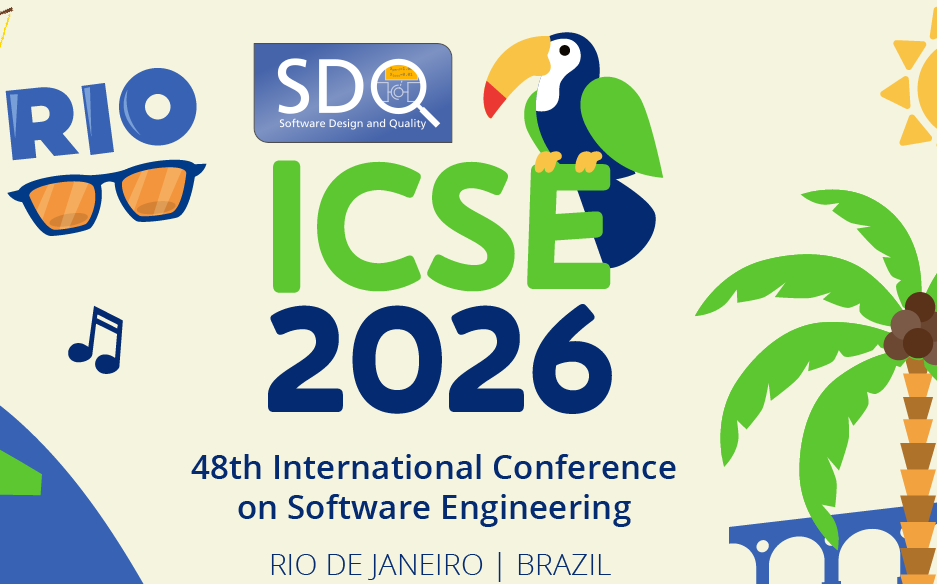
20.10.2025
We are happy to share that our paper “Same Same But Different: Preventing Refactoring Attacks on Software Plagiarism Detection” by Robin Maisch, Larissa Schmid, Timur Sağlam, and Nils Niehues has been accepted for presentation at the International Conference on Software Engineering (ICSE) 2026.
The work addresses a longstanding challenge in academic integrity: the vulnerability of source code plagiarism detection tools to refactoring-based obfuscation. The authors introduce Nocte, an extensible framework that leverages graph transformations on code property graphs to normalize code structure. This approach significantly strengthens the resilience of plagiarism detection systems against structural modifications often used to conceal copied code.
Congratulations to all authors on this excellent achievement!
ICSE26 Homepage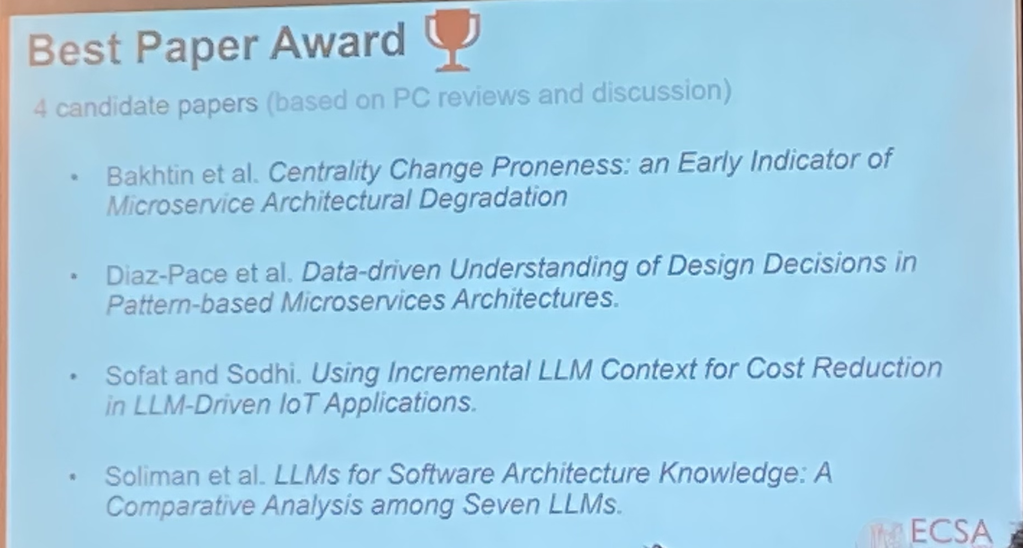
17.06.2025
Our chair is delighted to announce that our group member Jan Keim has received a Best Paper Award nomination at the 19th European Conference on Software Architecture (ECSA) for the paper “LLMs for Software Architecture Knowledge: A Comparative Analysis among Seven LLMs.”
The work, co-authored by Mohamed Soliman, Elia Ashraf, Kamel M. K. Abdelsalam, and Ashwin Prasad Shivarpatna Venkatesh, explores how large language models can support software architecture knowledge. The nomination recognizes the paper’s innovative contribution to advancing research at the intersection of AI and software engineering.
Link to the paper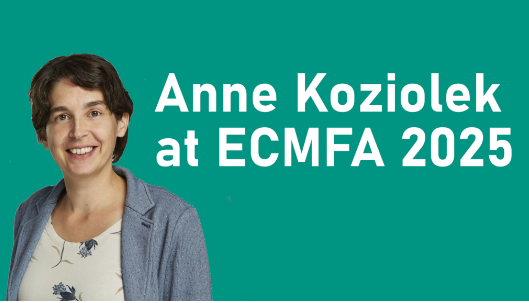
11.06.2025
Convide PI Professor Anne Koziolek gave a keynote titled "Modeling and LLMs in Continuous Software Engineering" at the 21st European Conference on Modelling Foundations and Applications (ECMFA).
The talk outlined a vision for the role of models in continuous software engineering, emphasizing their continued and central role in the age of AI.
View news at ECMFA website
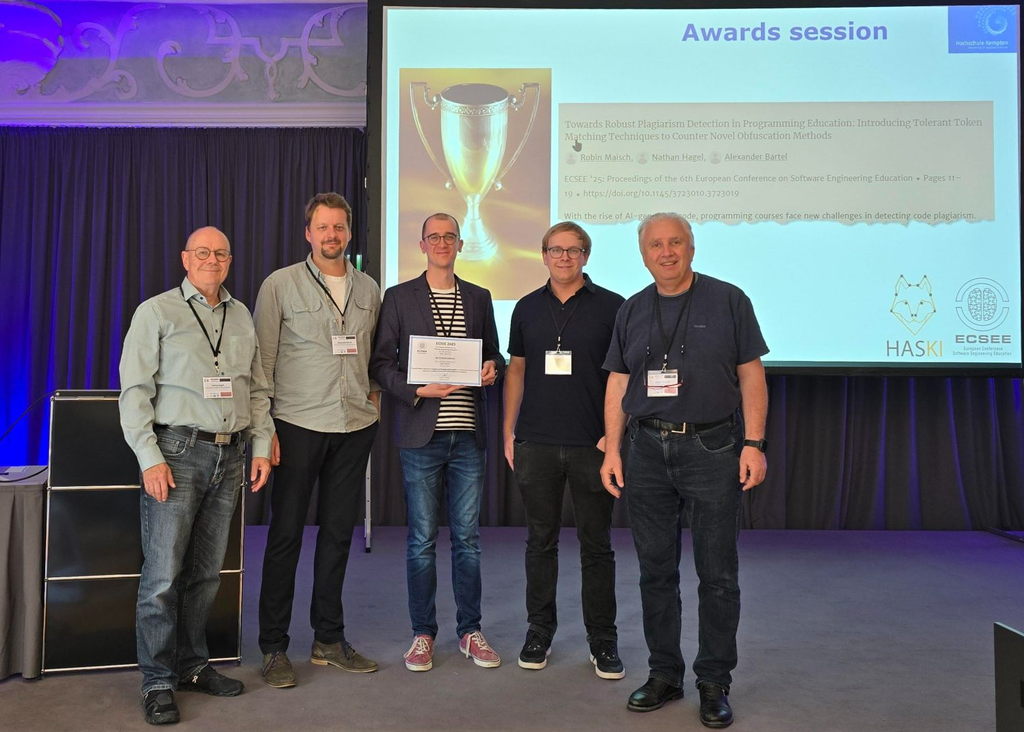
10.06.2025
Robin Maisch, Nathan Hagel, and Alexander Bartel, professor at Neu-Ulm University of Applied Sciences, have received the Best Paper award at the 6th European Conference on Software Engineering Education (ECSEE) for their paper “Towards Robust Plagiarism Detection in Programming Education: Introducing Tolerant Token Matching Techniques to Counter Novel Obfuscation Methods“.
In their work, the researchers have developed an approach to incorporate strategies from bioinformatics into state-of-the-art source code plagiarism detection systems in order to enhance the precision of detection while also preventing typical plagiarism obfuscation techniques often encountered in their teaching activities.
View paper at KITopen